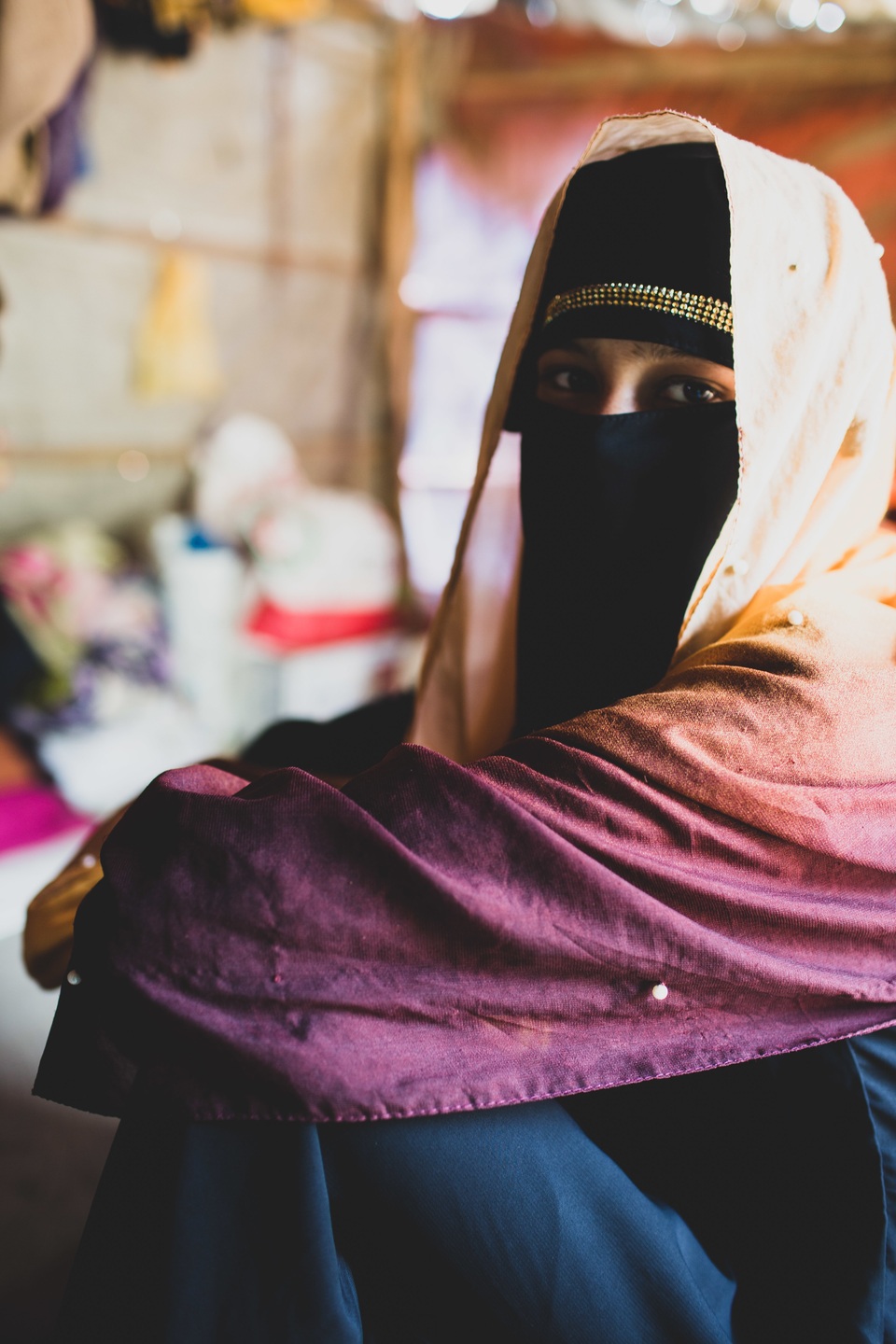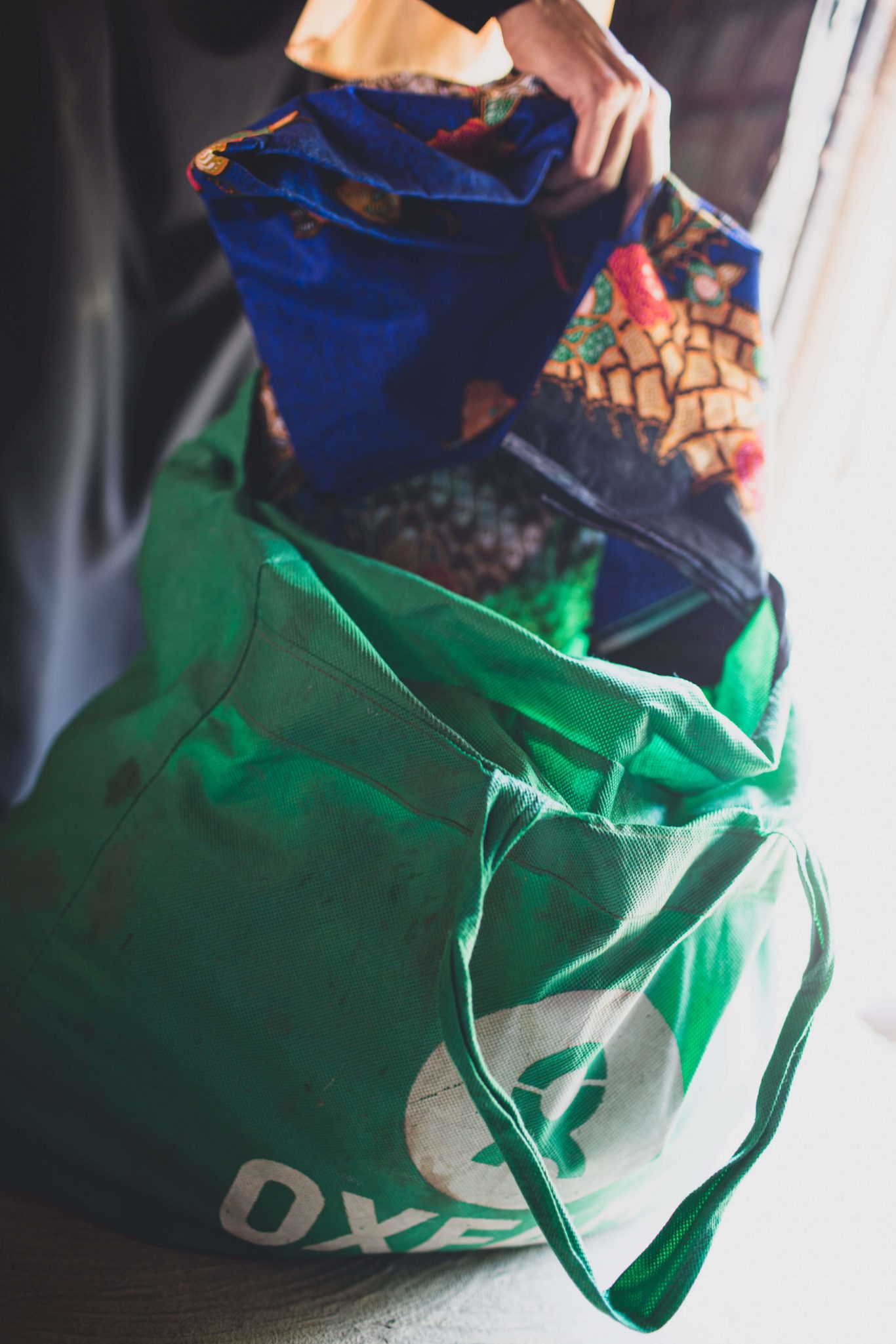I’m in the Right Place with Oxfam
For the last several years, I've become more and more deeply involved with Oxfam Canada. I now serve as the Chair on the Board of Directors and every day I am grateful to support work that makes me so proud. In my first year on the Board, I gained a great deal of respect and understanding for how Oxfam works and for the staff – here in Canada and around the world. I’ve also learned some things about myself.
When I joined the Board, I strongly believed in the importance of women's rights. But I didn’t consider myself a feminist. Now I do. I'm a hopeful, knowledgeable and motivated feminist who believes that change is happening. And knows that more change is coming, because of the work Oxfam does.
I'd worked in international development before, so I knew that Oxfam's approach was different from other organizations. I saw that Oxfam was leading the global effort against inequality and advancing rights for women and girls in a way that none of the other INGOs were.
I grew up in a traditional immigrant family in Canada. I keenly felt the boundaries that separated boys and girls in our home, and always pushed against them. I was also very aware of how much more difficult and dangerous these boundaries are for women and girls in other parts of the world. I saw that for myself, again, when I joined a small group of Oxfam staff on a trip to Bangladesh in 2019.
I only spent ten days in Bangladesh. But what I learned and felt there ended up being one of the most powerful and humbling experiences in my life. I travelled with four women, all members of Oxfam Canada's remarkable staff based in Ottawa. Once on the ground, we were hosted by Oxfam’s amazing Bangladesh team – who are facing challenges on many different fronts yet remain so hopeful and powerfully committed to their work.
The first project we visited was the Securing Rights project in Dhaka, the capital of Bangladesh, where Oxfam works closely with women domestic workers – one of the most marginalized groups in the country. The project focuses on supporting women so that their basic rights are respected, and they are given the opportunity to engage in decent work.
We learned about the challenges that women domestic workers face every day from the six partner organizations involved in the project – unsafe working conditions, long hours with no breaks, very low wages and incidents of workplace harassment and violence. Keen to join forces and tackle the issues head on, each partner organization brings their own perspectives and strengths.
After our time in Dhaka, we travelled to Cox's Bazar to see Oxfam's work in the world’s largest refugee camp, where more than 700,000 Rohingya people have fled from Myanmar to escape brutal persecution.
With local guides to help us navigate us through the labyrinth of these mega camps, we went beyond the usual facilities tour and met with families in the shelters that have become their homes.
Sitting on the floor in incredible heat and humidity in tiny tents of plastic sheeting we listened as the women we met shared their stories of violence, suffering and grief. We asked no questions, doing our best to simply be there and listen, not re-traumatize with questions about raw memories filled with pain.
We met one young woman who had fled her home in Myanmar, with no time to take clothes for the journey. Once in Cox's Bazar she was not able to be in public without borrowing a burqa, afraid that if she went out without one – to seek medical attention, use the bathing area or find food and water for her children – she might be assaulted or punished for not properly covering herself.
She was not alone: there are many women in the camp who are isolated and cut off, unable to access basic needs because they lack the culturally-appropriate clothing to go out of the family home.
Oxfam’s multicloth project, designed in partnership with Rohingya women and the host community, seeks to change this by providing cloth and tailoring vouchers to women to have culturally-appropriate garments made. A world leader in the provision of water, sanitation and hygiene, Oxfam is installing safe water points, and building culturally-appropriate toilets and shower blocks that specifically take the needs of women and girls into account. In 2019, Oxfam opened the largest human waste treatment plant ever built in a refugee camp and has installed solar-powered lights and provided torches and portable solar lanterns so that refugees – especially women – feel safer at night.
-

A young woman looks on in the Rohingya camp. Caroline Leal/Oxfam
-

Lack of proper clothing has greatly affected the ability of Rohingya refugee women to move freely around the camps. Caroline Leal/Oxfam
Our final stop was in Tangail, a district in the central region of Bangladesh, where we visited three different groups involved in Oxfam’s Creating Spaces to End Violence Against Women and Girls project. It was here that I saw Oxfam's incredible convening and influencing power at work. Women activists, community leaders, youth leaders, local imams, school teachers, senior police officers and local and regional politicians are all working together to acknowledge and change cultural norms around child, early and forced marriage and violence against women and girls. People wanted to talk about their experiences and making change – things they would never have voiced without Oxfam having worked to create a space that cultivated trust and hope. Women and girls. Men and boys. Muslim religious leaders speaking out against child marriage!
Of all the moving and powerful experiences I had, one I will never forget happened one evening in Tangail. Thirty people were sitting close together in a small office discussing the work of the Creating Spaces project. There was thunder and lightning and a torrential monsoon rain lashing down. The electricity went out and we carried on by candlelight. The commitment of all involved in the project and the depth of their desire to be part of transformative change will stay with me, and motivate me, forever.

One of the greatest challenges for me during this visit to Bangladesh was to manage my own feelings, so that I could be a strong witness to the harrowing stories we heard.
The women and girls we met had been through so many truly horrible things. They wanted to speak of their suffering and I wanted to listen and remain strong for them, trying hard not to break down into tears. It struck me that this is what Oxfam does every single day. Along with all the advocacy, programming and professional capacity of an international confederation, Oxfam is also there to recognize the extraordinary power of the human spirit. To simply honour those who have been through so much and to speak out to the world that this suffering is wrong. The courage and determination of the women and girls I met to fight for their rights left me humbled and hopeful.
Oxfam takes on challenges that few want to face – the seemingly intractable crises and inequalities that take patience and commitment to tackle from the ground up. Oxfam is tenacious and relentless and we will not give up, even when the political climate looks impossible. The people we work to serve are strong but they need us to help tip the scales that are weighted against them.
We all have moments in our lives when we are moved. Where we suddenly understand and feel something on a whole new level. And that’s exactly what happened when I went to Bangladesh. I saw, firsthand, the extraordinary work that Oxfam does to champion the rights of women and girls.
I now know, without question, that I’m in the right place with Oxfam. I hope that you’ll join us in our life-changing work in whatever way you can.

